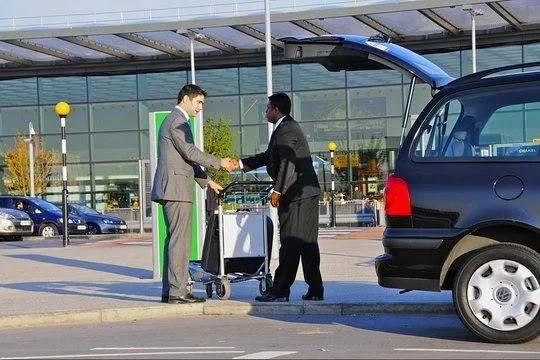When you arrive in the UK:
IS-NET's support does not finish after successfully getting you an unconditional offer and a visa for your studies; we also help you once you arrive in the UK by providing information and directions on where you decide to stay while in the UK. We also like to advise you on notable locations to visit and directions to those place in order to make studying in the UK a unique and amazing experience for you.
a. Registration with the Police
As an international student, after coming to the UK, you need to collect some documents and go to a police station.
Documents and information you need:
2 recent passport size coloured photographs
Your passport
Your visa ‘vignette’ (sticker in your passport), if you applied outside of the UK
The letter you got from the Home Office when your application was approved if you applied inside the UK
Your biometric residence permit, if you have one
The Police station will record:
Your full name
Your gender
Your marital status
Your date and country of birth
Your nationality
Any past nationalities and dates when your nationality changed
Your address in the UK
The address of the last place you lived outside the UK
The date and place you arrived in the UK, and how
Your passport or identity card details
What you can and cannot do with your visa, including how long you can stay
Your education provider’s name and address if you’re a student
Your employer’s name and address if you’re working
Your business details and address if you’re self-employed
The police can ask you for more information. You may also need to fill in an application form before you register.
b. Registration with the NHS
Under current regulations, anyone who comes to the UK to pursue a full-time course of study of more than 6 months in duration will be entitled to register with the National Health Service.
This also applies to spouses or children (under the age of 16, or 19 if still in education) if they are living permanently with you in the UK for the duration of your course.
You may be asked for proof of the duration of your course or your nationality when you register.
c. Opening a bank account
Your life in the UK will be much easier after opening a bank account, which will help you to view and check your funds in the currency you’re spending.
We will help you to choose the appropriate bank account based on various criteria the most critical ones are:
The location: You don’t want to pick a bank miles away from your university accommodation. It might seem all well and good now but if you have to catch a bus, train, cab or walk halfway across the city every time you need to cash a cheque or do any other kind of bank run, you won’t be so pleased.
It is free to take cash out from any ATM in the UK, not just your bank’s, but you never know when you might need to pop into the branch.
The cost of international transfers: You’re likely to want to send some money home and almost definitely will want to receive money from home. So, how much is your bank going to charge you for sending and receiving money from overseas? You’ll almost definitely want to look for one with the least expensive charges for international transfers.
d. Help with the accommodation
During your time at our partner universities, you will have several boarding options, such as:
Student accommodation
Private accommodation
Homestay
IS-NET promises to support you through every stage of the admission process until you get settled in the new country. We are aware of the worries and mixed thoughts an international student may face, especially if it is your first time. We will guide you through each step and ensure you are comfortable in your new home.

Follow Us:

Subscribe to our Newsletters.
Stay in touch with us and join our student's community.
© IS-NET (International Student Network)
